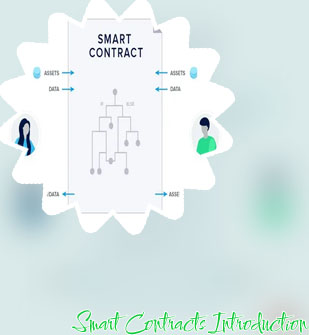Crypto Exchange

Bitcoin smart contracts
Applications of Smart Contracts in Emerging Technology
The principle of smart contracts was described by American cryptographer and programmer Nick Szabo back in 1996, long before the appearance of blockchain technology. According to Szabo’s conception, smart contracts are digital protocols for information transfer that use mathematical algorithms to automatically execute a transaction once the established conditions are met and that fully control the process. This definition, which was ahead of its time by over ten years, remains accurate to this day. However, in 1996 this conception could not be realized: at the time, the necessary technologies did not exist, particularly the distributed ledger. Crypto contracts Smart contracts introduce a new, transparent way of doing business, where peer-to-peer transactions can happen in a trustless environment. Moreover, advanced smart contract infrastructure has the potential to revolutionize shipping, logistics and trade on a global scale. Smart contracts can make transactions faster, cheaper, and more efficient from real estate to construction as well as supply chain management.Smart contracts on bitcoin
Currently, smart contracts are limited to contracts transferring funds or ownership. Contracts that require more subjective interpretations are not well-suited to the black-and-white, analytic nature of computer code. Industry Stories Please remember that the Tax Matters provides information for educational purposes, not specific tax or legal advice. Always consult a qualified tax or legal advisor before taking any action based on this information.
Azuro Protocol: Can the betting industry...
Smart contracts represent a next step in the progression of blockchains from a financial transaction protocol to an all-purpose utility (see sidebar below: What is blockchain technology?). They are pieces of software, not contracts in the legal sense, that extend blockchains’ utility from simply keeping a record of financial transaction entries to automatically implementing terms of multiparty agreements. Smart contracts are executed by a computer network that uses consensus protocols to agree upon the sequence of actions resulting from the contract’s code.6 The result is a method by which parties can agree upon terms and trust that they will be executed automatically, with reduced risk of error or manipulation. Smart Contracts How dApps Can Revolutionize FinanceBlockchain’s revolutionary effect on finance is no longer a potentiality, but a reality as dApps are already providing value and utility to consumers.Smart contract crypto
From a business perspective, it’s helpful to think of blockchain technology as a type of next-generation business process improvement software. Collaborative technology, such as blockchain, promises the ability to improve the business processes that occur between companies, radically lowering the “cost of trust.” For this reason, it may offer significantly higher returns for each investment dollar spent than most traditional internal investments. Arbitrators & Arbitration Services Smart contracts are trustless, autonomous, decentralized, and transparent. They are also irreversible and unmodifiable once deployed. This functionality has been utilized to make smart contracts the building blocks of hundreds of decentralized applications (dApps) and a major focal point of blockchain development in general.
Copyright © 2019 Binance login — Ascension WordPress theme by GoDaddy